Filter by
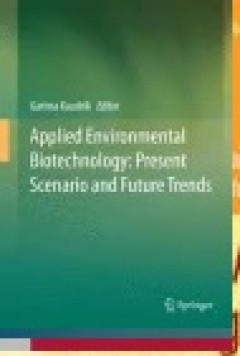
Applied Environmental Biotechnology: Present Scenario and Future Trends
Applied Environmental Biotechnology: Present Scenario and Future Trends is designed to serve as a reference book for students and researchers working in the area of applied environmental science. It presents various applications of environmental studies that involve the use of living organisms, bioprocesses engineering technology, and other fields in solving environmental problems like waste an…
- Edition
- Ed. 1
- ISBN/ISSN
- 978-81-322-2123-4
- Collation
- XVI, 167
- Series Title
- -
- Call Number
- 628 APP a
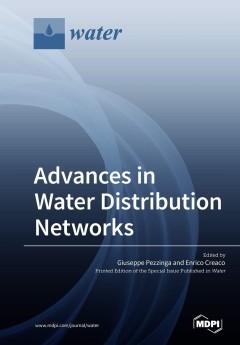
Advances in Water Distribution Networks
The Special Issue on Advances in Water Distribution Networks (WDNs) explores four important topics of research in the framework of WDNs, namely simulation and optimization modelling, topology and partitioning, water quality, and service effectiveness. With regard to the first topic, the following aspects are addressed: pressure-driven formulations, algorithms for the optimal location of control…
- Edition
- -
- ISBN/ISSN
- 978-3-03897-557-1
- Collation
- -
- Series Title
- -
- Call Number
- 628 ADV

Wildland Fuel Fundamentals and Applications
A new era in wildland fuel sciences is now evolving in such a way that fire scientists and managers need a comprehensive understanding of fuels ecology and science to fully understand fire effects and behavior on diverse ecosystem and landscape characteristics. This is a reference book on wildland fuel science; a book that describes fuels and their application in land management. There has nev…
- Edition
- -
- ISBN/ISSN
- 978-3-319-09015-3
- Collation
- XI, 191
- Series Title
- -
- Call Number
- -
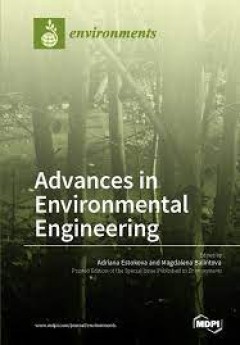
Advances in Environmental Engineering
The book presents research papers addressing a wide range of environmental topics: water and wastewater treatment and management, soil degradation and conservation, sediment pollution control, environmental impacts of technologies, life cycle analysis (LCA), air quality and indoor environment, and advanced environmental materials. The contributions provide novel and significant scientific resul…
- Edition
- -
- ISBN/ISSN
- 978-3-03897-002-6
- Collation
- -
- Series Title
- -
- Call Number
- 628 ADV
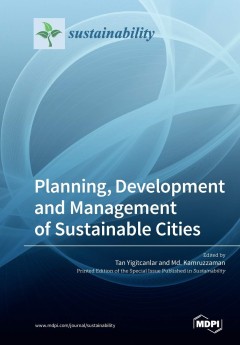
Planning, Development and Management of Sustainable Cities
The concept of ‘sustainable urban development’ has been pushed to the forefront of policymaking and politics as the world wakes up to the impacts of climate change and the destructive effects of the Anthropocene. Climate change has emerged to be one of the biggest challenges faced by our planet today, threatening both built and natural systems with long-term consequences, which may be irrev…
- Edition
- -
- ISBN/ISSN
- -
- Collation
- -
- Series Title
- -
- Call Number
- 628 PLA
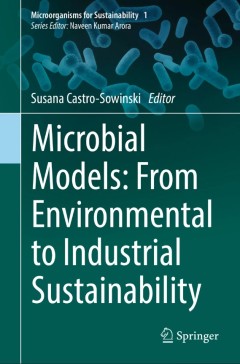
Microbial Models: From Environmental to Industrial Sustainability
This book describes selected microbial genera from the perspective of their environmentally and commercially sustainable use. By focusing on their physiology and metabolism and combining historical information with the latest developments, it presents a multidisciplinary portrait of microbial sustainability. The chapters provide readers descriptions of each genus in the form of microbial model…
- Edition
- 1
- ISBN/ISSN
- -
- Collation
- -
- Series Title
- -
- Call Number
- -
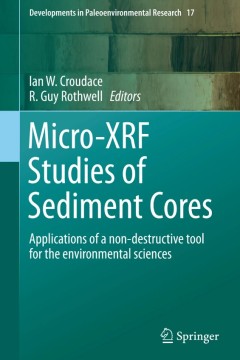
Micro-XRF Studies of Sediment Cores
This volume presents papers on the use of micro-XRF core scanners in palaeoenvironmental research. It contains a broad ranging view of instrument capability and points to future developments that will help contribute to higher precision elemental data and faster core analysis. Readers will find a diverse range of research by leading experts that have used micro-XRF core scanners in a wide range…
- Edition
- 1
- ISBN/ISSN
- 978-94-017-9848-8
- Collation
- XXXIX, 656
- Series Title
- Developments in Paleoenvironmental Research
- Call Number
- -

Microbial Styrene Degradation
This book describes the complex processes involved in styrene degradation by microbes, including highly adaptive microorganisms, the various enzymes involved in styrene biodegradation, new styrene-catabolic routes, novel regulatory mechanisms, and the genes coding for styrene metabolizing enzymes. Numerous biotechnological applications are discussed, such as the development of sustainable eco-f…
- Edition
- 1
- ISBN/ISSN
- 978-3-319-24860-8
- Collation
- XIV, 108
- Series Title
- SpringerBriefs in Microbiology
- Call Number
- -
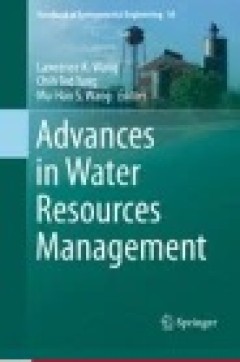
Advances in Water Resources Management
This volume provides in-depth coverage of such topics as multi-reservoir system operation theory and practice, management of aquifer systems connected to streams using semi-analytical models, one-dimensional model of water quality and aquatic ecosystem-ecotoxicology in river systems, environmental and health impacts of hydraulic fracturing and shale gas, bioaugmentation for water resources prot…
- Edition
- Ed. 1
- ISBN/ISSN
- 978-3-319-22924-9
- Collation
- XII, 569
- Series Title
- Handbook of Environmental Engineering
- Call Number
- 628.5 ADV a
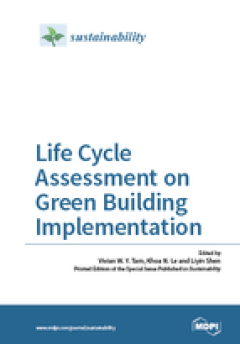
Life Cycle Assessment on Green Building Implementation
Greenhouse-gas emissions have become one of the most impacting environmental issues in today’s society. A rapidly increasing trend in global CO2emissions particularly since the early nineties (23.64% since 1990) has led to the generation of about 50,000 million tons of CO2–equivalent (eqv) worldwide in 2010. According to mainstream climate experts, the increasing concentration of greenhouse…
- Edition
- -
- ISBN/ISSN
- -
- Collation
- -
- Series Title
- -
- Call Number
- 628 LIF
 Computer Science, Information & General Works
Computer Science, Information & General Works  Philosophy & Psychology
Philosophy & Psychology  Religion
Religion  Social Sciences
Social Sciences  Language
Language  Pure Science
Pure Science  Applied Sciences
Applied Sciences  Art & Recreation
Art & Recreation  Literature
Literature  History & Geography
History & Geography